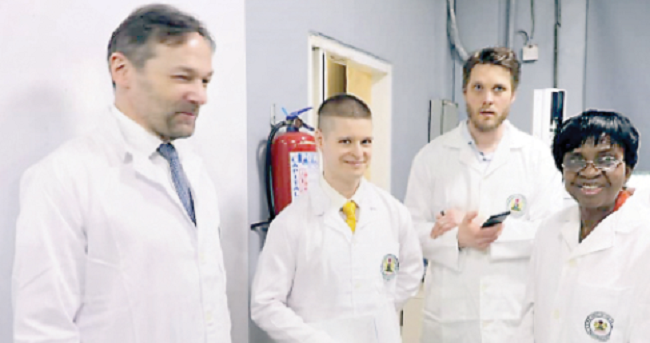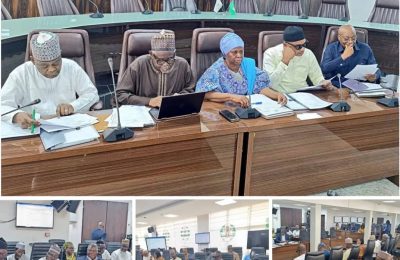
NATIONAL Agency for Food, Drug Administration and Control (NAFDAC) has been chosen to be considered to test chemicals for weapons of destruction by the Organization for Prohibition of Chemical Weapons (OPCW) laboratory designation.
A statement by the resident media consultant to NAFDAC, Sayo Akintola, said this feat was due to massive investment by the government to upgrade agency laboratories.

The director-general of NAFDAC, Professor Mojisola Adeyeye, in her remarks said, “We have been on this for about four years now, except for the COVID-19 period which really affected activities.
“We are going on proficiency testing and we have gone from ‘participation’ to ‘very good’ which is the highest level in the OPCW’s assessment,” she said.
The NAFDAC boss said experts from The Hague and Helsinki on inspection of the agency’s facilities and readiness were overwhelmed by the commitment of the agency and the National Authority for Chemical and Biological Weapons Convention (NAC&BWC) in Nigeria, and the Federal Government to the project.
Professor Adeyeye said that in Africa, Nigeria and Kenya are being considered for this.
“Nigeria will cover West Africa and some parts of Africa. Wherever there are skirmishes or the use of weapons, it might not only be a war situation, but the tendency also that there could be an explosive somewhere, we could be invited to sample those things and then test for the possibility of using harmful chemicals that could be lethal to people.
“If for example, in Niger State or anywhere for that matter, there was an explosive, we sample it to see what is its byproduct to ascertain if it would be lethal to people when they come in contact with them.”
According to the statement, experts from the OPCW visited NAFDAC’s central laboratory in Oshodi, Lagos for inspection and assessment of facilities to be deployed for the job.
Officials of OPCW in The Hague, The Netherlands, came with experts on laboratory assessment from Finnish Institute of Verification of Chemical Weapons Convention (FERIVIN) based in the University of Helsinki.
Leader of the OPCW team, Dr Roman Warchol, hailed the facilities provided by NAFDAC, saying they were comparable to those found in the advanced world.
“I’m happy and satisfied with what I have seen,” he said.








